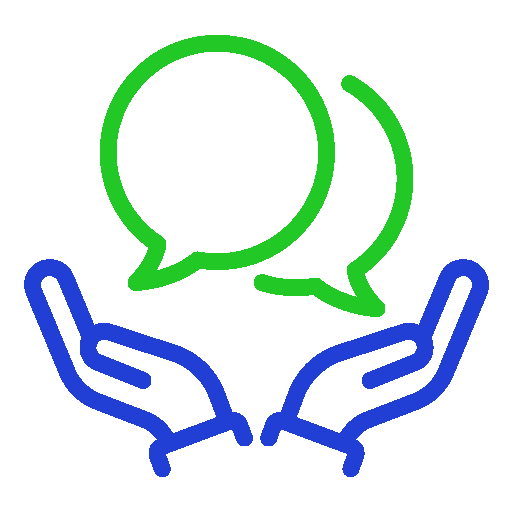The journey toward addiction recovery is never easy. It often involves undertaking tasks that can be physically and emotionally draining, such as therapy sessions, support group meetings, and medication, all while managing emotional pain. It can be challenging to stay focused and calm amidst all the chaos and turmoil of addiction.
However, there is a practice that can help settle and center the mind. This practice is known as grounding.
Below are the best grounding techniques for addiction recovery you should know for your personal journey.
What is Grounding?
Grounding is a therapeutic technique that connects an individual’s mind to the earth’s energy, often referred to as a grounding technique. It is a mindfulness practice that involves intentionally maintaining contact with the present moment and the ground without being pulled or overwhelmed by negative thoughts. This calming technique is proven to have tremendous healing benefits, particularly for individuals with addiction.
How Grounding Works
Grounding techniques work by helping individuals focus on the present moment and become more aware of their physical sensations. When we experience emotional distress, our minds can become overwhelmed, and we may feel disconnected from our bodies. Grounding techniques help to bring our attention back to the present moment, allowing us to better manage our emotions and reduce feelings of anxiety and stress.
These techniques activate the parasympathetic nervous system (PNS), which promotes relaxation and reduces stress. By focusing on physical sensations, such as deep breathing or the sensation of our feet on the ground, we can calm our minds and bodies. This can help to reduce physical tension, improve emotional regulation, and increase feelings of calm and well-being.
The Benefits of Grounding
There are three major benefits:
1. Reduces Anxiety and Stress
Grounding can be very beneficial for individuals who are undergoing addiction recovery. To begin, it helps reduce stress and anxiety, two factors that can lead to relapse. When you are anxious or overwhelmed, grounding can help redirect the focus from the negative thoughts and emotions that can trigger cravings. Grounding can also be particularly effective for individuals dealing with post-traumatic stress disorder (PTSD), helping to manage symptoms and reduce overwhelming emotions.
2. Achieves a Sense of Self-Awareness
Secondly, practicing grounding can help individuals achieve a sense of self-awareness. It can help you better understand your emotions, thoughts, and triggers and develop proper coping mechanisms. With this understanding, you are better equipped to take charge of your recovery.
3. Improves Overall Well-Being
Additionally, grounding can improve an individual’s overall well-being. It can promote better sleep, reduce symptoms of depression, improve digestion, and enhance focus and concentration.
Physical Grounding Techniques for Yourself During Your Recovery
To practice grounding, you must first find a quiet place to be alone and unbothered. Once you have found this peaceful place, begin by sitting down or standing barefoot and closing your eyes. Make sure you have contact with the earth’s surface.
Grounding not only involves physical sensations but also engages deep cognitive abilities to maintain focus and awareness. For example, try to clear your mind of all thoughts, feelings, and emotions. You can use this time to focus on your breathing and observe the sensations in your body. You can picture a peaceful scene in your mind, such as a beach or a forest.
Connect with the earth’s energy by imagining a cord or beam of light coming out of your feet and stretching down deep into the earth’s core. Visualize the earth’s energy flowing freely up the light beam and into your body. As you do this, breathe deeply and let the energy flow through you.
Types of Grounding Techniques
There are several types of grounding techniques that can be used to manage emotional distress and promote relaxation. These include:
- Physical grounding techniques: These techniques involve using physical sensations to ground ourselves in the present moment. Examples include deep breathing exercises, progressive muscle relaxation, and focusing on the sensation of our feet on the ground.
- Mental grounding techniques: These techniques involve using mental distractions to ground ourselves in the present moment. Examples include visualization, positive affirmations, and mindfulness meditation.
- Soothing grounding techniques: These techniques involve using calming activities to ground ourselves in the present moment. Examples include listening to calming music, taking a warm bath, and practicing yoga or tai chi.
Grounding Techniques for Managing Emotions
Grounding techniques can be particularly helpful for managing emotions, especially during times of stress or anxiety. By focusing on physical sensations and the present moment, we can reduce feelings of emotional overwhelm and improve our emotional regulation.
Some examples of experiential grounding techniques for managing emotions include:
- Deep breathing exercises: Deep breathing can help to calm the mind and body, reducing feelings of anxiety and stress. Try inhaling deeply through your nose, holding for a few seconds, and then exhaling slowly through your mouth.
- Progressive muscle relaxation: This technique involves tensing and relaxing different muscle groups to reduce physical tension and promote relaxation. Start from your toes and work your way up to your head, tensing each muscle group for a few seconds before releasing.
- Mindfulness meditation: Mindfulness meditation involves focusing on the present moment, without judgment, to reduce stress and improve emotional regulation. Find a quiet place, sit comfortably, and focus on your breath or a specific object.
- Positive affirmations: Repeating positive affirmations can help to improve mood and reduce negative thoughts. Choose affirmations that resonate with you, such as “I am strong” or “I am in control of my recovery.”
Implementing Grounding Techniques in Daily Life
Grounding techniques can be easily incorporated into daily life and can be used in a variety of situations to promote relaxation and reduce stress. Here are some tips for implementing grounding techniques in daily life:
- Start small: Begin with short grounding exercises, such as deep breathing or progressive muscle relaxation, and gradually increase the duration as you become more comfortable with the techniques.
- Practice regularly: Make grounding techniques a regular part of your daily routine, such as right after waking up or before bed. Consistency is key to reaping the benefits.
- Use reminders: Place reminders throughout your day to practice grounding techniques, such as a post-it note on your computer or a reminder on your phone. These prompts can help you stay on track.
- Find what works for you: Experiment with different grounding techniques to find what works best for you and your lifestyle. Everyone is different, so it’s important to find the methods that resonate with you. Remember: grounding can complement other therapies like group therapy or CBT sessions, leading to a more empowered and fulfilling recovery experience.
By incorporating grounding techniques into your daily life, you can create a more balanced and peaceful state of mind, which is essential for successful addiction recovery.
Taking Control of Your Recovery Process
The practice of grounding can be an essential tool for individuals undergoing addiction recovery. It can help in many ways, such as reducing anxiety, increasing self-awareness, and improving overall well-being. There are several methods for grounding, but ultimately, it’s about taking the time and creating a space to connect with oneself and nature.
If you’re ready to begin a recovery program, our team at The Lakes Treatment Center is eager to take your call. Contact us today at (209) 309-3573 to begin your recovery journey.







